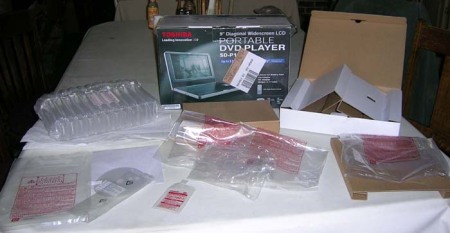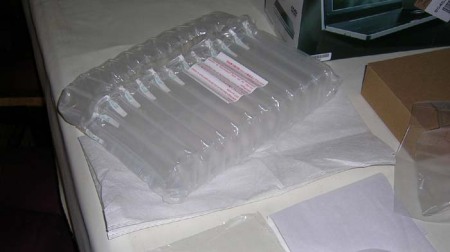Now, I’m neither the youngest nor the brightest lightbulb in the fixture, but I do want to make it clear that I know my subject line isn’t the same as “Give it up for Hillary.” Nor do I mean it to be.
There’s a terrific Jimmy Margulies cartoon in today’s “Week In Review,” the op-ed section of the Sunday NY Times. The interviewer/commentator says: “The math is against you in delegates needed for the nomination. . .” and Hillary responds: “I didn’t give up at Valley Forge. . .I didn’t give up at Gettysburg. . .I didn’t give up at D-Day. . .and I’m not giving up now.”
Hillary, you have proven yourself a prevaricator without even the sense to understand when your untruths have been detected. I know you haven’t claimed to have invented the Internet or saved the free world single-handedly. But you have demonstrated the one characteristic that sends me running to the bathroom in case of projectile vomiting. You are the ultimate politician.
Sweetie, I’m your target demographic, an over-50 woman with a couple of college degrees, a lifetime in business, and a strong belief that a woman in the Presidency would bring something that’s badly needed.
But not you. Not now, not ever.
I’m old enough to have voted for both John Anderson and Ross Perot, knowing in each case that I was probably wasting my vote but hoping for something other than business-as-usual. I can honestly say I never even contemplated voting for Ralph Nader, however.
I’m of that rare breed called the “truly independent.” I was a registered Democrat for an extended period of time until I decided that the Democratic Party had lost its marbles. So then I became a registered Republican. Ditto with that party. For some time now, I’ve been registered without party affiliation.
I pay a price for that. I can’t vote (in Oregon, anyway) in any of the party primaries. I contemplated registering again as a Democrat just so I could vote against you in May, but then I realized how many fund-raising and ideological mailings I’d get and decided against it. I think my fellow Oregonians will take care of you here. Many of them actually have some sense.
But if you are banking on calling in chits with the “superdelegates” (and what a crock that is–a group of party “elite” in place to override the will of the voters in case they aren’t smart enough to choose the right candidate–this is democracy?), I hope you will think again. A candidate who gets there by such means will have no more credibility than a President elected by the Supreme Court, to quote someone else’s recent example.
So give it up. Now. Let’s get on with a race between two people who arguably are outsiders from the political establishment, let them present their views, and let the people choose. At this point you are merely a spoiler.
And while I’m busy ranting on this topic I almost never comment on, I have a few words for the other major candidates in this race:
Barack: The Jeremiah Wright thing told me a great deal more about your character than almost anything else you’ve done. I congratulate you for being forthright. I have lots of “sparring partners” with whom I don’t agree (otherwise, we wouldn’t be sparring now, would we?). In fact, if people evaluated my character by the folks that I tolerate and even like to argue with, they’d be way off the mark. Your response to these attacks told me you are really a grownup with a well-developed sense of a diverse world.
I don’t have the background to know the things that you “know” about racism. But I congratulate you on your ability to articulate your position without blowing in the wind.
John: I’m a long-time admirer of yours, but I frankly liked you a great deal better before the GOP apparently started coaching you on what was required to get elected. You’re sounding like a politician, and that isn’t one of your strengths.
I have a certain amount of faith in your common sense and straight talk. Don’t waffle now. Stay who you are, and I might even vote for you. Unlike many of my acquaintance, I don’t think foreign policy is going to be made in the campaign speeches. I just want to elect someone I feel comfortable can make it. No matter who is President, we don’t be out of Iraq tomorrow. But you buy yourself nothing by being so belligerent about it.
Now a few words for “my fellow Americans”: Hey, guys, if you haven’t noticed, the world is changing. It’s not just global warming, the sub-prime mortgage crisis, the devalued dollar, and the globalized economy. It’s a comeuppance to the sort of economic colonialization that the U.S.A., as an economically powerful superpower, has been able to indulge in for decades.
If one definition of insanity is doing the same thing again and again and hoping for different results, then go toe your favorite party line and vote accordingly.
But if you are concerned about a viable (not necessarily wealthy or over-consuming, just viable) future for yourself and your childen, then take some time to look beyond the heirs apparent for a leader who can actually think. And vote accordingly.
Whoever is elected this fall steps into a mess. He/she will need all of our good wishes and help, so vote for someone you want to help advance “in the direction of your dreams” (to paraphrase Thoreau), not someone you think can fix all your problems.
That person doesn’t exist.








